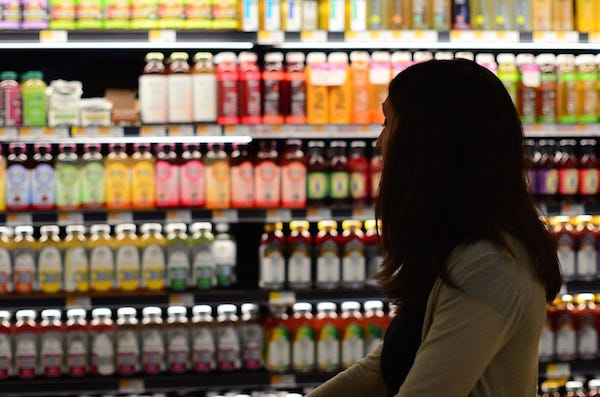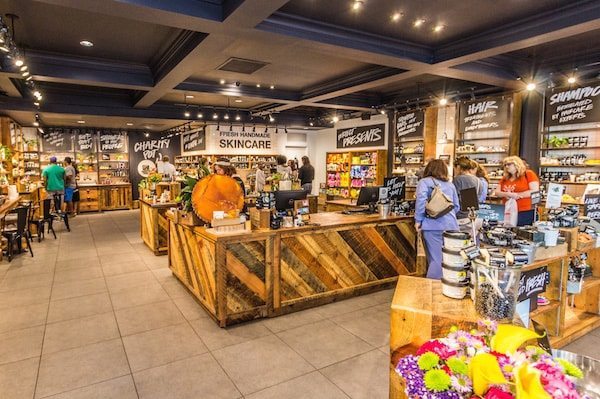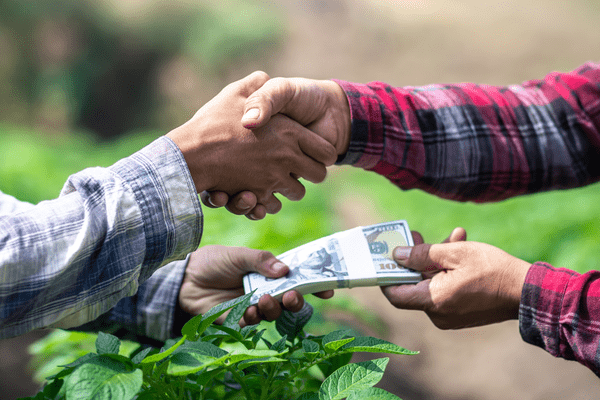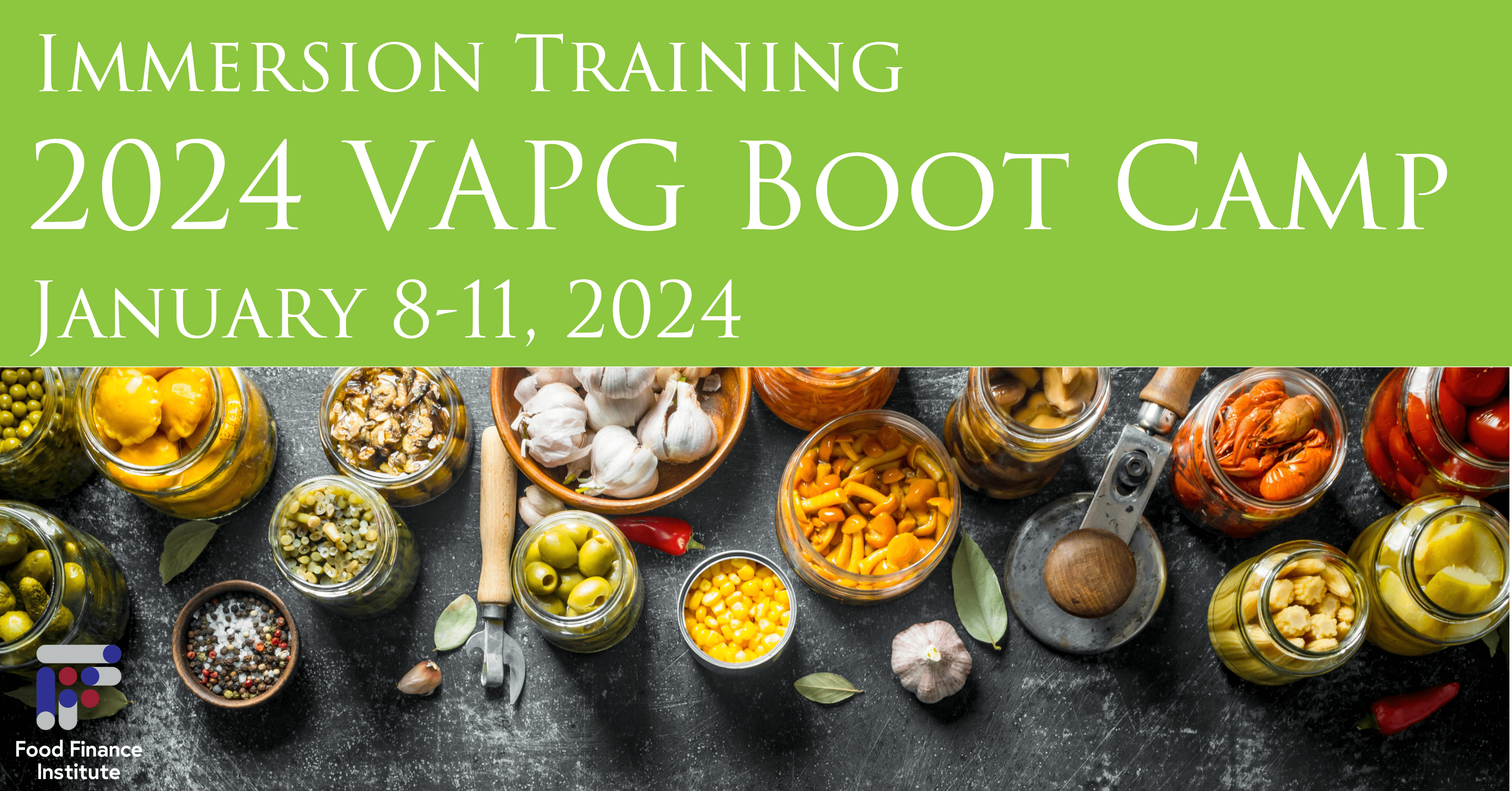When farmers seek financing, the vast majority go through banks, credit unions, and other traditional lenders. Many also take advantage of government grants and loan programs. Rarely do they take on equity investment—but that doesn’t mean it can’t be a viable option. Trading a slice of ownership for working capital may enable a farmer to install infrastructure, purchase equipment, increase acreage, or invest in other key areas that propel business growth.
Cliff McConville, founder of All Grass Farms northwest of Chicago, has had great success with equity financing. Around 2014, he and partner Anna had wanted to lease more land and renovate an old dairy barn, but they lacked the cash. And since they’d been in business for only 2.5 years and generated just $200,000 annually, they knew they’d have a tough time getting a bank on board.
Instead, Cliff hit up four longtime friends who had investible assets. Collectively, the friends assumed 30% of the business, giving Cliff and Anna the capital to install a milking parlor, septic system, and other upgrades. As All Grass Farms increases profitability, they will start distributing dividends annually.
In the latest Edible-Alpha® podcast, Cliff shares his best advice for farmers considering equity financing.
Get your feet wet first. Cliff recommends the equity route, but not when farmers are just starting. “Bootstrap your business until you really know that you are passionate about farming and know what to do to be successful,” he says. “We raised capital in our third year, after I had a better idea of our needs, how the business was evolving, and whether this was something I wanted to do this for the rest of my life and that we could make money.”
Shore up your business plan. Before courting any type of financing, farmers should draw up or polish up their business plan. Cliff kept his a simple 10-pager that spelled out pro forma financials and projected revenues.
Hit up friends and family. It could be tough to convince angel investors whom you don’t know personally to buy into a farm, whereas loved ones may be an easier sell. Plus, family and friends are often more laid back, patient, and understanding.
Consider loyal customers. A committed customer or two might be eager to support your business, so don’t overlook them as potential investors.
Be clear about expectations. No matter whom you pitch investment to, “make sure they understand the nature of this slow-money business,” Cliff says. “I spelled out that we’re not projecting to make a bunch of money in the next five years—this will be a long, slow enterprise. I positioned it as a feel-good investment, not a huge financial windfall. It’s about supporting a business they buy from and believe in.”
Raise more than you think you’ll need. Cliff figured it would cost $120,000 to get the barn up to snuff and farm store open. His prediction fell way short, and the investor money ran out fast. “The moral of the story is everything will take twice as long and cost twice as much as you think,” Cliff says. “So make your best estimate and then double it.”

All Grass Farms provides grass-fed beef, raw A2 milk, and a range of pastured proteins, along with operating a farm store, so it’s a good thing owner Cliff McConville has a lock on financial management. Adept at enterprise-level analysis, Cliff carefully tracks costs, revenues, and profits to inform business decisions and strategize growth. Learn how he has expanded this diversified ag operation through unique financing and smart decision-making.
And now, our roundup of the best food and beverage finance news, events and resources from around the web…

Business Model Insights
- Is the era of online shopping as the ‘great equalizer’ for small and large brands ending? (FoodNavigator-USA)
- Early in the pandemic, emerging food brands enjoyed a lower barrier to market entry courtesy of the surge in online grocery shopping. But as consumers increasingly return to brick-and-mortar, that barrier is inching back up, new data suggests, requiring brands built around direct-to-consumer to re-strategize or pivot.
- Start Creating “Brand New Friends” With Your Competition (Deep Dish CPG)
- One-ingredient wonders: How brands like Oatly and Banza build businesses around a single ingredient (Thingtesting)

Raising Capital
- Venture Capital’s Emerging Role in Driving Regeneration (Regenerative Food Systems Investment Forum News)
- How one VC firm is filling the funding gap for regeneration—and inspiring others to do the same.
- What’s Cheaper: Raising Debt Or Surrendering Equity? (Forbes)
- Loans from a Community-Based Lender Help Women-Owned Businesses Grow (Forbes)

CPG/National Brands
- The Keys to Driving CPG Growth Through a Potential 2023 Downturn (IRI Insights)
- With inflation, dwindled personal savings, increased debt, and declining consumer confidence all impacting shopping behavior, brands must be especially strategic to prosper during this recessionary period.
- Bioengineered food labeling: ‘They kind of shot in the middle and missed every constituency’ (FoodNavigator-USA)
- Food Brands—and Their Suppliers—in the Metaverse (Food Industry Executive)

Market Trends
- Plant-based meat gets a reality check (Deloitte Insights)
- After years of growth, plant-based meat sales in the U.S. are stagnating, with several factors likely slowing demand.
- From food as medicine to sustainable packaging – trendspotting at Expo East (FoodNavigator-USA)
- Looking forward to 2023 trends (Food & Beverage Insider)

Farming and AgTech
- Why You Should Grow Almonds and Thyme Together (Modern Farmer)
- A new study confirms that these plants make the perfect pairing—both environmentally and economically.
- More Consumers Buying Organic, but Farmers Still Wary (Food Manufacturing)
- Butter supply constrained as some producers forgo churning (Supply Chain Dive)

Deals/M&A
- Propagate Raises $10M Series A to Fuel Efforts to Scale Agroforestry Industry (Regenerative Food Systems Investment Forum News)
- Working with farmers, agribusinesses, and service providers to design and install regenerative tree-crop systems that work in tandem with existing farm operations, the startup also offers equity investments for agroforestry transition.
- Orkla Food Ingredients acquires majority stake in Denali Ingredients (FoodBev Media)
- What Happens To Your Small Company After An Acquisition? (Food Processing)

Industry Events
Virtual events:
- FFI Level 1 Consultant Training: 11/9
- Wisconsin Women’s Business Initiative Corporation Annual Convention Training Session: Manufacturing Resiliency: 12/3
- FFI Level 2 Consultant Training: 12/7
In-person events:
- The Land Connection: Unconventional Eaters: Exploring Local Through Film, Food & Conversation: 10/23 in Urbana, IL
- PACK EXPO International: 10/23–10/26 in Chicago, IL
- Wisconsin Women in Conservation: Harvest Your Conservation Potential: 10/25 in Racine, WI
- Rodale Institute Southeast Organic Center Field Day: 10/26 in Chattahoochee Hills, GA
- Global Produce and Floral Show: 10/27–10/29 in Orlando, FL
- The Land Connection: Accessing New Markets Through Distribution Field Day: 10/28 in Urbana, IL
- The Land Connection New Farmer U: 10/28–10/29 in Urbana, IL
- Poultry Tech Summit: 10/30–11/1 in Atlanta, GA
- SupplySide West/Food ingredients North America: 10/31–11/4 in Las Vegas, NV
- Nutrition Capital Network Ingredient Tech Investor Meeting: 11/1 in Las Vegas, NV
- American Food Manufacturing Summit: 11/8–11/9 in Chicago, IL
- Kosherfest: 11/8–11/9 in Secaucus, NJ
- Emerging Farmers Conference: 11/12–11/13 in Shoreview, MN
- Private Label Manufacturers Association Show: 11/13–11/5 in Chicago, IL
- Wisconsin Women’s Business Initiative Corporation Annual Convention: 11/15 in Milwaukee, WI
- Midwest Food Products Association 2022 Annual Convention: 11/29–12/1 in Wisconsin Dells, WI
- Organic Grower Summit: 11/30–12/1 in Monterey, CA
- NOSH Live Winter 2022: 12/1–12/2 in Santa Monica, CA
- BevNET Live Winter 2022: 12/5–12/6 in Santa Monica, CA
- American Seed Trade Association CSS & Seed Expo: 12/5–12/8 in Chicago, IL

